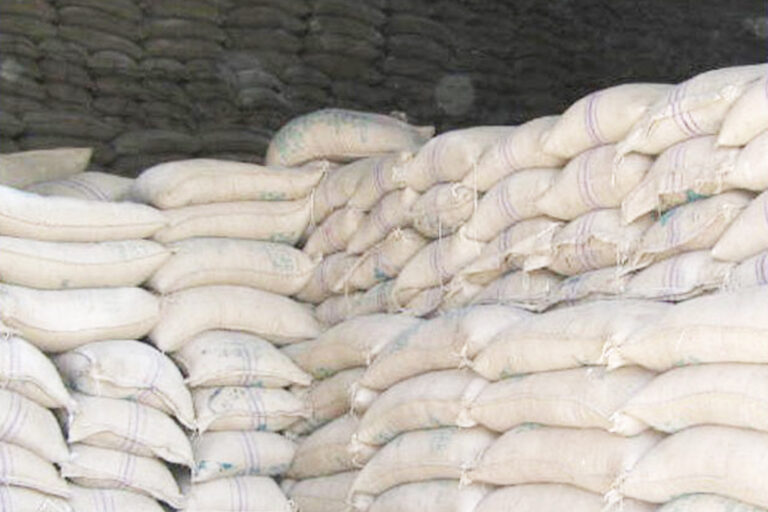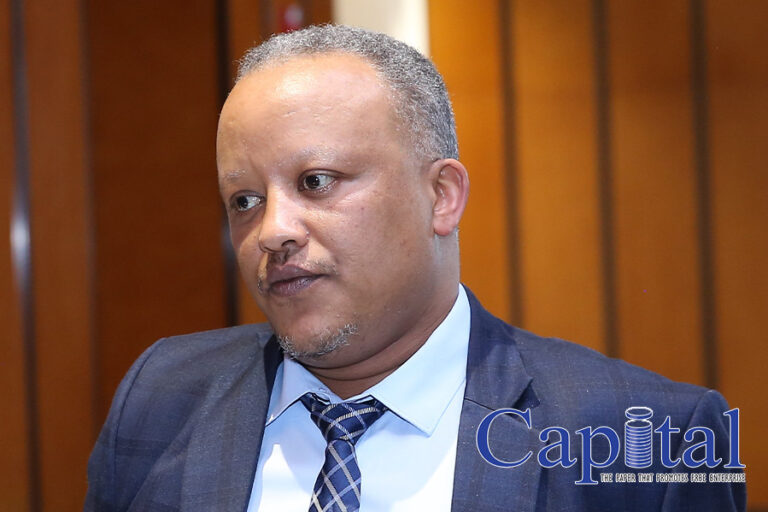In a letter issued on Friday April 8 and sent to Customs Commission MoF disclosed that it passed a decision that Ethiopians who live aboard and the diaspora can import basic commodities under franco valuta.
The new announcement is the replacement of the decision that it issued about a year ago. In April 2021 MoF allowed the diaspora and Ethiopians who live abroad can import consumer goods on franco valuta, while the National Bank of Ethiopia was assigned to confirm the source of the hard currency.
The previous announcement imposed a minimum smount of USD 250, 000 value of commodities as requirement for the import of the items.
However in the latest move the ministry has lifted such restrictions. Ahmed Shide, Minister of Finance told Capital that the government has decided to lift the minimum requirement for the import of the basic goods.
“Any one who lives abroad including the diaspora can import the stated commodities with any volume and value,” he explained.
Ahmed added that the new decision will be applicabe for at least six months, “we will review based on the circumstances but now we can say that it can be applied for the coming six months.”
Now reviewing the source of the foreign currency is not also a mandatory.
Edible oil, wheat, sugar, instant milk for infants, and rice are the commodities that can be imported through franco valuta.
The Ministry of Finance (MoF) lifts conditions of the foreign currency amount and the source for the import of basic commodities through franco valuta scheme
Sugar procurement sent to 3rd party for approval
The Ethiopian Sugar Corporation (ESC) pushes the decision for the procurement of 200,000 metric tons of sugar to third parties for a reason it said clarity and insuring the benefit of end users.
It was recalled that after the failure of the international bid about two weeks ago the Corporation invited shortlisted international companies to submit their offer to supply of the sweet.
Sources said that about six prominent global companies in commodity supply; Al Khaleej Sugar, Wilmar Sugar, Agrocorp International, Sucden, and ED & F Man were invited to offer their price until March 21. The last two companies participated on the last failed bid.
However Capital was unable to get the list of finalists from the shortlisted companies, whom almost all submitted their offer, two companies have been included in the final stage.
According to ESC, it has concluded its evaluation and shared its result for the Ministry of Finance and Ministry Trade and Regional Integration to give their view on the process.
Weyo Roba, CEO of ESC, confirmed that the Corporation shared its conclusion for the two offices. He said that despite the ESC has a full mandate to decide on the procurement process, “we have shared the result for third parties for further clarity and to come at the same understanding about the process.”
He told Capital that the two ministries will evaluate the bid and will table it to the National Macro-Economic Committee for final consent.
“We decided to pass through this process for the sake of transparency and to see alternatives by higher level officials for the benefit of the country in general and to the end consumer in particular,” he added.
However experts argued that the long delayed process will affect the procurement process in this inflation hit world. They said that there is shortage of sufficient product in the country that makes it the corporation to sit on the bid.
Weyo responded to this saying that so far the country has ample sugar in storage. “Besides using the regular tender, the government will approach major producers for direct purchase for better price as an alternative, that is why we push the issue to higher government officials,” adding, “the consumer should not be harmed by inflated price that is observed in the global market.”
The country annually imports up to 350,000 metric tons of sugar to address the gap. ESC targeted to produce 413,000 metric tons in the current budget year.
ESC said that in the budget year the corporation planned to supply about 720,000 metric tons of sugar for consumption.
The sugar demand has been growing from time to time and it is estimated that the country’s annual sugar demand stands at 1.2 million metric tons. Thus the remaining gap is covered by other importers who have special permit from the government and those who have Franco-Valuta privileges.
ESLSE makes moves to support perishable cargo
The Ethiopian Shipping and Logistics Services Enterprise (ESLSE) is gearing up to procure its own reefer containers for the first time with the aim of aligning with the growing interest in shorter shelf-life commodity consignment via vessels.
Ethiopian Horticulture Producer and Exporters Association (EHPEA) welcomes the move that would make its members more competitive in the global market.
The public logistics giant that is currently using leased reefer containers for commodities mostly that are at the trial stage, has floated an international bid for suppliers to purchase 31 40 feet MGSS reefer containers.
Roba Megersa, CEO of ESLSE, told Capital that the enterprise is opting to buy the reefer to support the export rather than for revenue-oriented purposes, “this initiative is not for profit-oriented but we want to support the export of perishables.”
He told Capital that ESLSE has already facilitated two hectares of a dedicated terminal at Mojo Dry Port for reefer cargo handling and power plug-in service.
“As per our plan in the short term we will have up to 50 reefer containers to accelerate the export of agro-industry products,” Roba added.
The consignment of reefer cargo is limited in Ethiopia to which experts said that Freighters International, one of the well-known private logistics companies in Ethiopia and has long-term agent partnership with the leading containerized cargo operator of Danish-based Maersk, is stated as operating in the sector.
Wondimu Denbu, Deputy CEO for Corporate Service at ESLSE, told Capital that ESLSE has been floated the bid two times to which sufficient and qualified suppliers did not participate.
“Mid this week the third bid was expected to be opened, however, it was pushed by about two weeks as per the request of suppliers, who are interested to participate in the bid,” he explained.
The consignment of perishable cargos through vessels is highly recommended since it has a competitive advantage in the global market. The issue has been frequently raised by Ethiopian fresh producers and exporters like fruit and vegetable sector actors.
While the government has been carrying out different initiatives and several pilot operations to export perishable commodities through vessels are packed with reefer containers. For instance, recently Ethiopian avocado has been exported through the new initiative to the European market.
Tewodros Zewdie, Executive Director of EHPEA, said that the lack of reefer containers is the weakest link for the sector business and its supply chains.
“After lack of ample cold warehousing and other issues, the availability of reefer container is one of the challenges for sector competitiveness,” Tewodros told Capital.
“Next to flower, which is the second biggest export earning commodity for Ethiopia after coffee, the export of fruits and vegetables is our competitive advantage on the global market; ESLSE’s current move is a good opportunity for the sector,” he explained.
He said that cost of reefer containers and the availability of the box is pivotal to expanding the fruit and vegetable export.
“The decision of ESLSE is to some extent improve the availability of the reefer container,” he added.
Experts said that using vessels means a less costly mode of transport besides enabling to manage the shipment of bigger size of cargo other than airfreight.
They added that cool logistics investments, by drastically reducing transport costs and lead times, can unlock Ethiopia’s perishable industry.
Ethiopia is working to strengthen the cool logistics corridor that links farms with dry ports and railway network system up to sea port at Djibouti. The cool supply chain at Mojo is part of the new initiative.
ESLSE has also expanded its container ownership from about 3,000 to close to 14,000 different sizes of containers in a very short period.






